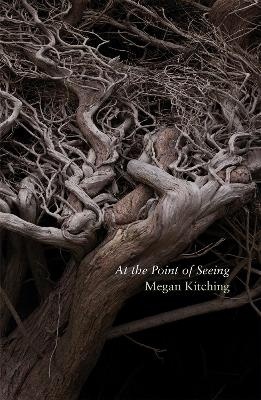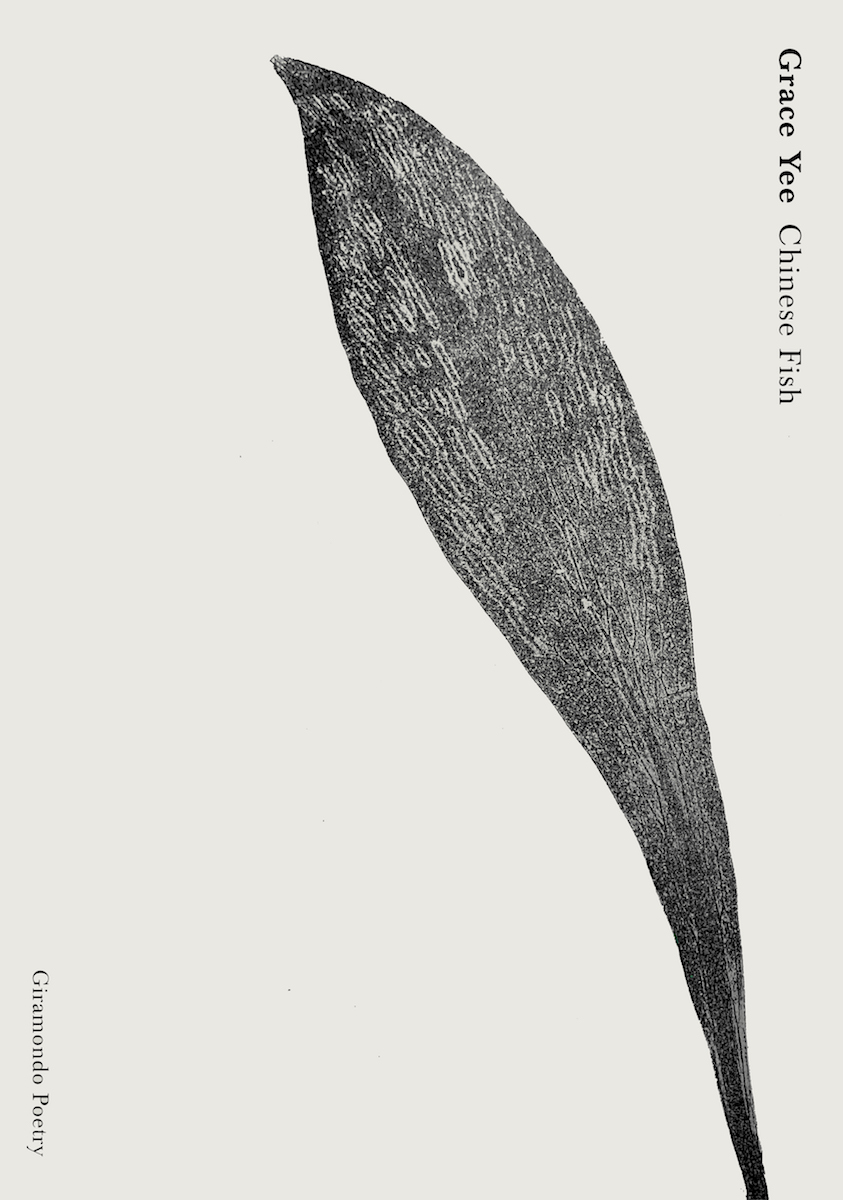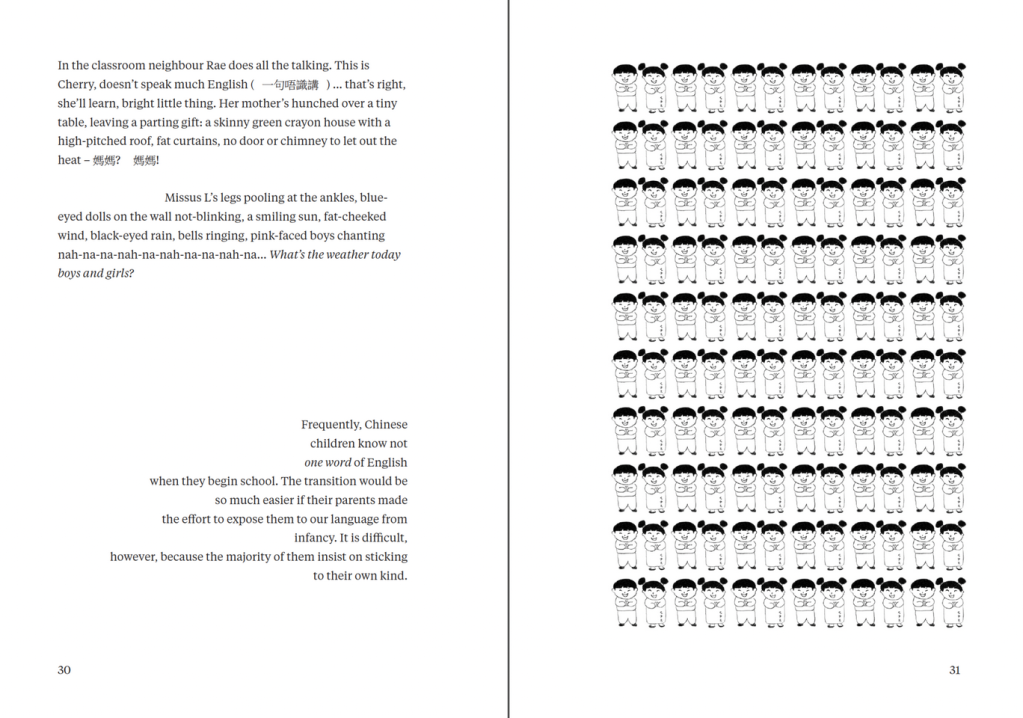“I am incredibly moved by all the amazing readings we’ve had tonight. They just bring the room alive. Books multiply the world, and it’s just incredible to hear all of the worlds that were evoked in these books we’ve heard from tonight. I really want to shout out to all the books that have been published in the past year. I am so grateful to everyone who supports books, to the booksellers, all the sponsors, to everyone who has come here tonight, to readers, I think of all of us writers as readers, first and foremost, and that’s something that brings us all together.
It’s been helpful for me to remember that it’s been our books going through this prize process, not us, it’s really easy to conflate these things, especially in writing when we’ve put all of ourselves into our work. It is about the books. I hope everyone can go to their local library or booksellers and ask them to recommend a New Zealand book.
Fiction is a form of magic. It’s necessary magic. It has saved many of us at different times in our lives and it will again if we let it. To the politicians and decision makers and anybody who might find themselves in a system of ‘what if?’, I say read a story, read a novel, and the work of the great Canadian writer, Alice Munro, who died today, and remember how vulnerable and layered and loving and connected we all are, and how much we need each other.”
an extract from Emily Perkins acceptance speech
for Lioness (Bloomsbury UK), winner of the Jann Medlicott Acorn Prize for Fiction
Last night I live streamed the book awards. It was a terrific occasion that honoured sixteen books shortlisted in the four categories, and the three best first books. This year Te Mūrau o te Tuhi, a special award given for a book written originally and entirely in te reo Māori, was given to Tā Pou Temara KNZM (Ngāi Tūhoe), esteemed academic and Waitangi Tribunal member, for Te Rautakitahi O Tūhoe ki Ōrākau (Kotahi Rau Pukapuka, Auckland University Press). Watch online here.
Like Emma, I particularly loved the short readings from each author. I loved Jack Tame as emcee. I valued the ongoing insistence that books matter, that our books reflect and speak to us, and that in Aotearoa, we continue to write, read, publish, purchase and borrow books.
I loved Emma Wehipeihana‘s reading from There’s a Cure for This (Penguin). Her acceptance speech for (E. H. McCormick Prize for Best First Book of General Non-Fiction) was brilliant, especially with junior doctors going on strike again today. Emma said: “As a doctor I’ve seen the insides of most orifices of the human body and held the viscera of the living and the dead, and I can tell you without a doubt, it’s the arts and artists who elevate our existence from being sacks of meat circling a dying star to something magical, sometimes with meaning.” The judges write: “Emma Wehipeihana’s engaging, eloquent, witty and sometimes confronting memoir is an extremely impressive first book. It is structured as a series of powerful essays about her journey as a wahine Māori through both her early life and her time in medical school. Emerging as a doctor, she recounts with candour and wry humour the racism she and other Māori experience, and she highlights, in an infinitely readable way, the structural inequalities in the health system.”
I also loved Emily Perkins speech and her reading from Lioness (Bloomsbury UK), winner of the Jann Medlicott Acorn Prize for Fiction. Perhaps one of the best acceptance speeches I have heard in years and I’ve quoted most of it above. I began 2024 by reading Lioness. A perfect start to the year – so layered and heart tapping, idea challenging, character rich – it’s a must read. The judges write: “Emily Perkins deftly wrangles a large cast of characters in vivid technicolour, giving each their moment in the sun, while dexterously weaving together multiple plotlines. Her acute observations and razor-sharp wit decimate the tropes of mid-life in moments of pure prose brilliance, leaving the reader gasping for more. Disturbing, deep, smart, and funny as hell, Lioness is unforgettable.”
Gregory O’Brien‘s beautifully published Don Binney Flight Path (Auckland University Press) won the Booksellers Aotearoa NZ Award for Illustrated Non-Fiction. It is an art treasure. So much love and research and care went into this book. The judges write: “Even as an experienced biographer, Gregory O’Brien has achieved a near impossible task in Don Binney: Flight Path. He has encapsulated the artist’s full life, honestly portraying his often contrary personality, and carefully interrogating a formidably large body of work and its place in Aotearoa New Zealand’s art history. O’Brien’s respect for Binney includes acknowledging that he could be both charming and curmudgeonly, and as a result he offers a complete picture of this complex and creative man.”
Book awards have the ability to your attention to books you have missed, books that immediately go to the top of the must-read pile. Today I am ordering a copy of Toeolesulusulu Damon Salesa‘s An Indigenous Ocean: Pacific Essays (Bridget Williams Books). He won the General Non-Fiction Award for his and the judges said: “This scholarly but highly accessible collection of essays carves out space for indigenous voices to tell their own narratives. Grounded in a deep understanding of Pacific history and cultures, Salesa addresses the contemporary social, political, economic, regional and international issues faced by Pacific nations. This seminal work asserts the Pacific’s ongoing impact worldwide, despite marginalisation by New Zealand and others, and will maintain its relevance for generations.”
I am also itching to read Emma Hislop’s (Kāi Tahu) Ruin and Other Stories (Te Herenga Waka University Press) which was awarded Hubert Church Prize for Best First Book of Fiction. The judges write: “Emma Hislop’s portrayals are perceptive, providing the women in her stories the space to grapple with disquieting questions that lack easy answers, while the insistent humanity of her characterisations suggests cause for hope. There is not a spare word in these refined and compelling stories, which introduce a striking new voice to our literature.”
Yes, there are countless extraordinary books that made neither the 2023 longlist nor the shortlist, but today, for just this moment, I am saluting our fabulous winners. Long may we write, read, publish, buy and share our local stories, knowledge and imaginings.
Ockham NZ Book Awards page
The Poetry


It is with great pleasure I congratulate Grace Yee, winner of the 2024 Ockham NZ Book Award for Poetry, and Megan Kitching, winner of Best First Book of Poetry. It was a stellar shortlist; I loved all four books on the list, and celebrated them on Poetry Shelf with absolute poetry pleasure (as indeed I did the longlist and various sublime collections that didn’t make either). I have included the judges’ comments at the bottom.
Winner of Mary and Peter Biggs Award for Poetry
Chinese Fish, Grace Yee, Giramondo Press, 2023

Grace Yee’s terrific debut poetry collection caught my attention immediately- the clarity of writing, the intricate and affecting weave of multiples voices, voices that carry family, issues of immigration and racism, overlapping motifs. She weaves English and Cantonese and Taishanese. Dialogue sits alongside the newspaper borrowings, lyricism alongside more scholarly lines. Historical and cultural facts, along with additional comments, arrive in a faint grey font, little disruptions like a persistent shadow that hovers behind every we line we read, every voice we hear. And yes food is a succulent presence, a visibility that heightens both the sense of belonging and not belonging: from roast lamb, brussel sprouts and white bread to steamed rice and wontons in soup.
In my review I wrote:
“Grace has produced a remarkable poetry collection that speaks to who we are and who we have been. It is a vital reminder that we need to do better, that we need to listen and forge connections, celebrate and welcome, make and enact laws that are just, acknowledge the richness of all cultures. Poetry has the power to reflect and speak to humanity. It is essential. To have spent time with this book is a gift.“
What is the point of this anecdote? Is this a story
about assimilation
or – god forbid – miscegenation? This
Cherry character
doesn’t seem very … Chinese.
Could you put her in a chong-sam
or have her wipe a few grains of rice
from her mouth…or explore the Pākeha boy’s point of view
perhaps? How does he feel kissing this exotic
Chinese girl? Does she taste like
soy sauce?
from ‘For the Good Husband’
“Yee’s craft is remarkable,” judge Erik Kennedy says. “She moves between old newspaper cuttings, advertisements, letters, recipes, cultural theory, and dialogue. Creating a new archival poetics for the Chinese trans-Tasman diaspora, the sequence narrates a Hong Kong family’s assimilation into New Zealand life from the 1960s to the 1980s, interrogating ideas of citizenship and national identity. It displaces the reader, evoking the unsettledness of migration. In Chinese Fish, Yee cooks up a rich variety of poetic material into a book that is special and strange; this is poetry at its urgent and thrilling best.”
Grace Yee is the author of Chinese Fish, winner of the Victorian Prize for Literature and the Victorian Premier’s Poetry Award in 2024. Her poetry has been widely published and anthologised across Australia and Aotearoa, and internationally, and has been awarded the Patricia Hackett Prize, the Peter Steele Poetry Award, and a Creative Fellowship at the State Library Victoria. Grace has taught in the Writing and Literature Program at Deakin University, and in the Creative Writing Program at the University of Melbourne, where she completed a PhD on settler Chinese women’s storytelling in Aotearoa New Zealand. She lives in Melbourne, on Wurundjeri land.
Giramond page
Poetry Shelf feature
Winner of The Jessie Mackay Prize for Poetry Best First Book
At The Point of Seeing, Megan Kitching, Otago University Press, 2023
When I first started reading Megan’s At the Point of Seeing, it was an intake of breath, knowing this was a poet to watch, this was a book of return, and indeed, on every occasion of reading, I think and feel something new. It is there in the title, this vital cusp, this sway between comprehension and obliviousness. Awareness alongside ignorance. Megan’s collection holds out the natural world, so we may also stand on the point of seeing. So we may absorb the wildness, the wilderness, the edge. So we may inhale beauty and growth. So we may recognise how our states of awareness might be infected or controlled, how our blindness to choices of the past might aggravate contemporary and future life.
In my review I wrote:
“I also read this sumptuous collection as musical sound track, and again it produces wonder, delight, sonic surprise. It is a sweetly mixed playlist as we move from assonance, to rhyme, near rhyme, alliteration, aural dip and lift and slide. It is writing on the wire. It is scoring the world, it is intricate melody, it is open tuning.”
Ah. I am pitching this book to you, when against all odds, poetry is a lifeline, the source of joy, the connecting force, the point of contemplation. We are at the point of seeing, we are at the point of speaking, sharing, hoping, and poetry such as this, poetry as good as this, makes all the difference.
An Environmental History
The book hurts but I go on reading.
It doesn’t take long once we come to it:
sharp as an adze blow, ash blaze, rats’ teeth,
whalebone, deals done, a swift overrun.
The toll of knock-on consequences
like a ship’s wake razing shore upon shore
is a line too often sung. Eaten, exhausted,
our stores of regret for the flightless dead.
Down on the beach, gulls are feeding.
All I do for today is watch each fend
their patch as terns zone in, heads cocked.
Fish shirr water, fleet away to their own resources.
Ponderous, as if evolving only now, dimly
feeling something has changed, chitons
graze the rock. There is food in books too,
better knowing, but until we come to that
let algae, plankton, foliage flourish
long enough to keep the survivors fed.
Megan Kitching
At the Point of Seeing, Otago University Press, 2023
The judge, Erik Kennedy writes: “At the Point of Seeing is one of the most accomplished debuts readers are likely to encounter. The collection uses structure to amplify meaning, and its luxuriant lexicon and sometimes knotty syntax are always invigorating rather than confusing. But this book is never a mere exercise in building poems mechanically. Megan Kitching’s poems are warm-blooded, compassionate, and inquiring. They take the reader into an Aotearoa landscape and a moral universe that they will want to explore over and over again.”
Megan Kitching was born in Tāmaki Makarau Auckland and now lives in Ōtepoti Dunedin. She holds a PhD in English Literature from Queen Mary University, London, looking at the influence of the natural sciences on eighteenth-century poetry. She has taught English and creative writing in the UK and at the University of Otago. Her poetry has appeared in The Frogmore Papers (UK), takahē, Poetry New Zealand, and Landfall. “The horses,” published in takahē 95, was nominated for Best Small Fictions 2020. In 2021, she was the inaugural Caselberg Trust Elizabeth Brooke-Carr Emerging Writer Resident. At the Point of Seeing is her debut collection.
Otago University Press page
Poetry Shelf feature


Pingback: Poetry Shelf newsletter | NZ Poetry Shelf